High-Intensity Focused Ultrasound (HIFU) in Switzerland
Search and Compare the Best Clinics and Doctors at the Lowest Prices for High-Intensity Focused Ultrasound (HIFU) in Switzerland
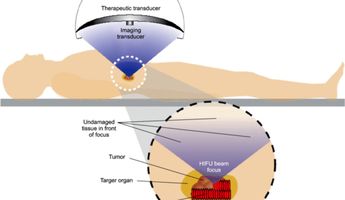
Find the best clinics for High-Intensity Focused Ultrasound (HIFU) in Switzerland
No pricing info available
Indonesia offers the best prices Worldwide
Price: $ 56
From 10 verified reviews
interprète ? Couyère, 24 January 2020
this morning in radiology, all very nice and very efficient I recommend 👍
From 40 verified reviews
Lena Meier, 22 September 2020
I can't think of a better place for our daughter's birth. With the team at Klinik Im Park, I felt that I was in the best hands at all times. In the newly renovated rooms in the maternity ward, you feel like you are in a 5-star hotel. An all-round perfect start for our daughter and her parents ;-)
From 21 verified reviews
Doriana RIVA, 10 September 2020
A huge thank you to the healthcare team who took care of me urgently on April 22, 2020. The welcome at the front desk, the anesthesia team, the assistants, the nurses in the operating room and the recovery room were so sweet and very attentive.I will never forget that time spent with you. Good luck to everyone, e.D. Riva
Klinik Hirslanden, located in Witellikerstrasse, Zurich, Switzerland offers patients High-Intensity Focused Ultrasound (HIFU) procedures among its total of 530 available procedures, across 28 different specialties. Currently, there's no pricing information for High-Intensity Focused Ultrasound (HIFU) procedures at Klinik Hirslanden, as all prices are available on request only. All procedures and treatments are undertaken by the lead specialist at the Clinic, and they are not accredited by any recognized accreditations institutes
- Home
- Switzerland
Compare Before & After Photos of _procedure_photos.phpHigh-Intensity Focused Ultrasound (HIFU)
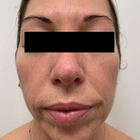
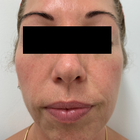
Front view
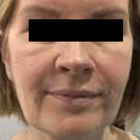
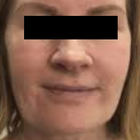
Front view
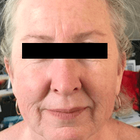
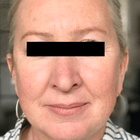
Front view
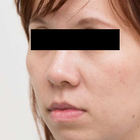
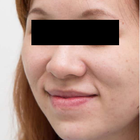
Front view
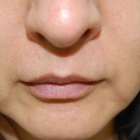
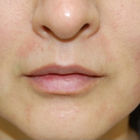
Front view
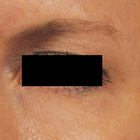
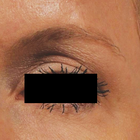
Front view
WHY US?
At Medijump, we're making medical easy. You can search, compare, discuss, and book your medical all in one place. We open the door to the best medical providers worldwide, saving you time and energy along the way, and it's all for FREE, no hidden fees, and no price markups guaranteed. So what are you waiting for?

Free

Best Price

Widest Selection

Risk-Free
What you need to know about High-Intensity Focused Ultrasound (HIFU) in Switzerland
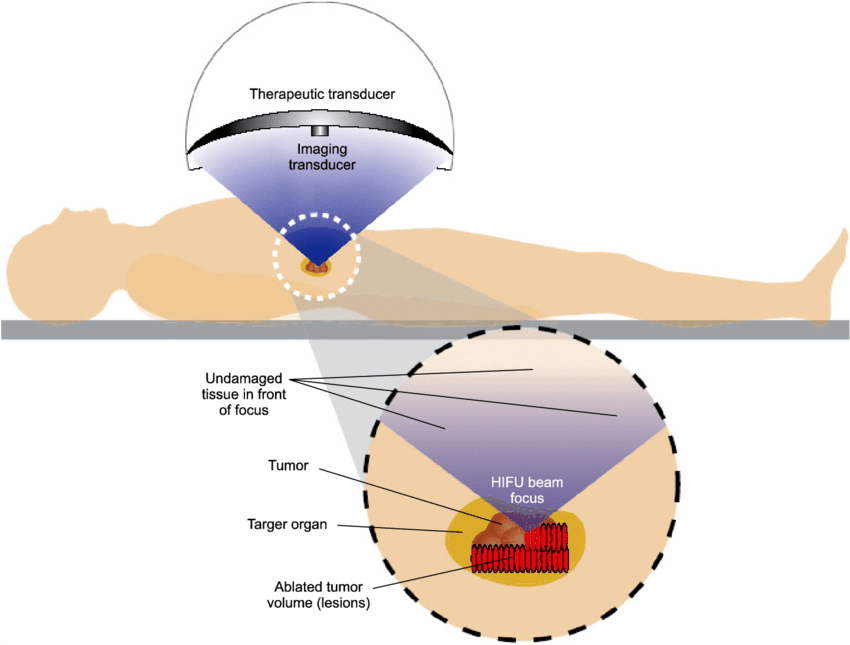
High intensity focussed ultrasound technique (HIFU) also known as focussed ultrasound surgery (FUS), uses non-ionizing ultrasound waves to heat up your body tissues. Temperature can be increased up to 70 to 90°C. These sound waves do not pass through air and bone. It is used for multi-purposes. It works to increase your blood, and lymph flow stimulates cell division and destroys tumor cells. It can also be used to treat a number of disorders including various types of cancer and uterine fibroids. Its use in the treatment of prostate cancer is gaining fame. It can also be used for cosmetic reasons, to reduce wrinkles, aging lines and to lift your loose skin. It is found to be most effective on jawline and cheeks. It should always be performed by the experts because the sonication of the wrong tissue can be dangerous. Also, there might be incomplete destruction of the tumor. Some areas of your body can not be sonicated as they are sensitive to sound waves, this should also be kept in mind while performing HIFU. It can only be used to treat localized cancer and tumors. Cancer which has spread cannot be cured through HIFU.
As HIFU is involved in the treatment of a number of diseases, before going through it, you may suffer from those diseases. These disorders include ovarian fibroids, different types of cancers, breast tumors, Parkinsonism, and a number of other neurological disabilities. You might have loose skin of face, neck, and chest. Vaginal laxity is also a problem. After HIFU, your tumors are destroyed, cancer cells are killed and diseases are cured. Your loose skin looks tightened and strengthened. Wrinkles and aging lines are gone. Vaginal and skin laxity are removed. You look younger than your actual age.
What does a High-Intensity Focused Ultrasound (HIFU) Procedure Involve?
The procedure begins with cleaning the area to be sonicated with alcohol swabs so that there are no germs and bacteria. In the next step, a gel is applied to your skin. Magnetic resonance imaging (MRI) or ultrasound is used to focus the exact tissue, organ or tumor that needs to be treated. The individual is sedated to avoid discomfort and pain during the procedure. After this, the procedure differs according to the purpose of HIFU. In general, an acoustic lens is used to focus sound waves on the targeted organ. The transducer device is used to emit sound waves. The sound waves propagate through the various layers of skin to reach the tumor to be destructed. When sound waves reach the tumor, heat is produced there increasing the temperature up to 90°C in 20 seconds only. This heat starts destroying the cancer cells there.
How Long Should I Stay in Switzerland for a High-Intensity Focused Ultrasound (HIFU) Procedure?
It is a 1 to 4 hours procedure. It depends upon the purpose for which HIFU is being performed. Generally, it is an outpatient procedure. You can be discharged from the hospital after the effects of the sedatives subside. You should plan to stay in Switzerland for at least 14 days after your Procedure, this will allow for the initial recovery and follow-up check-ups, etc.
What's the Recovery Time for High-Intensity Focused Ultrasound (HIFU) Procedures in Switzerland?
The recovery time differs and depends upon the purpose for which HIFU is being carried out. You may suffer from pain and discomfort for 3 to 4 days after the procedure. The soreness and swelling will subside in 2 to 3 weeks. It has less recovery time and has less invasive techniques approved by the FDA. The Non-ionizing radiations used in this technique are the least damaging.
What sort of Aftercare is Required for High-Intensity Focused Ultrasound (HIFU) Procedures in Switzerland?
Aftercare differs in accordance with the purpose for which HIFU is done. However, the following points should be kept in mind to look after yourself at home after being discharged:
- Visit your doctor on a regular basis.
- Do not drive home if you are still under the influence of sedatives.
- Eat healthily. Follow a diet plan made by an expert. It can help you recover faster.
- Take your medicines as and when prescribed by the doctor.
- Take a rest and give yourself time to recover.
- In the case of HIFU for cosmetic reasons, avoid contact with sunlight and wear sunscreen while going out.
- Do not rub or massage your skin.
- Look for something wrong. If you find any sign, visit your doctor immediately.
- In case of any discomfort, contact your physician. Do not go for self-medication.
What's the Success Rate of High-Intensity Focused Ultrasound (HIFU) Procedures in Switzerland?
HIFU has been found to be very successful in the treatment of most of the disorders. However, the success rate differs for each purpose. According to a study, the overall success rate for prostate cancer treatment was reported to be 84%. Cancer patients were divided into 3 groups. The high-risk group showed a low success rate. The intermediate group showed a higher success rate reaching 83.4% and the low-risk group showed the highest success rate of 94.2%. It is also found to be very effective and successful in treating skin laxity and uterine fibroids.
Are there Alternatives to High-Intensity Focused Ultrasound (HIFU) Procedures in Switzerland?
In actuality, HIFU itself is a non-surgical alternative to most of the surgeries. However, the following are some useful alternatives to HIFU:
- Dermal fillers: it is an alternative of HIFU for a facelift. Injections containing Botox, Restylane, etc. are given into your skin to make it look lifted and plump. Your skin looks wrinkle-free and you look younger than your age.
- Uterine artery embolization: this is a treatment for uterine fibroids. Arteries supplying the uterus are occluded by injecting an embolic agent into it. This cuts off blood supply to the fibroids causing them to shrink and ultimately die.
- Radical prostatectomy: also known as an open prostatectomy, entire prostate and seminal vesicle along with some lymph nodes in the pelvic area is surgically removed. Nerve damage is avoided to ensure erection and active sexual life afterward.
- Bilateral orchiectomy: in this surgery, both the testicles are surgically removed. This helps in treating prostate cancer.
- Brachytherapy: in this therapy, radioactive substances are directly inserted into the prostate gland. These are called seeds which give off radiations around the area where they were placed.
Whilst the information presented here has been accurately sourced and verified by a medical professional for its accuracy, it is still advised to consult with your doctor before pursuing a medical treatment at one of the listed medical providers
No Time?
Tell us what you're looking for and we'll reachout to the top clinics all at once
Enquire Now

Popular Procedures in Switzerland
Prices Start From $979

Prices Start From $714

Prices Start From $16

Prices Start From $28

Prices Start From $53

Recommended Medical Centers in Switzerland for High-Intensity Focused Ultrasound (HIFU)

- Interpreter services
- Translation service
- Religious facilities
- Medical records transfer
- Medical travel insurance
- Health insurance coordination
- TV in the room
- Safe in the room
- Phone in the room
- Private rooms for patients available

- Interpreter services
- Translation service
- Religious facilities
- Medical records transfer
- Medical travel insurance
- Health insurance coordination
- TV in the room
- Safe in the room
- Phone in the room
- Private rooms for patients available

- Interpreter services
- Translation service
- Religious facilities
- Medical records transfer
- Medical travel insurance
- Health insurance coordination
- TV in the room
- Safe in the room
- Phone in the room
- Private rooms for patients available

- Interpreter services
- Translation service
- Religious facilities
- Medical records transfer
- Medical travel insurance
- Health insurance coordination
- TV in the room
- Safe in the room
- Phone in the room
- Private rooms for patients available

- Interpreter services
- Translation service
- Religious facilities
- Medical records transfer
- Medical travel insurance
- Health insurance coordination
- TV in the room
- Safe in the room
- Phone in the room
- Private rooms for patients available

- Interpreter services
- Translation service
- Religious facilities
- Medical records transfer
- Medical travel insurance
- Health insurance coordination
- TV in the room
- Safe in the room
- Phone in the room
- Private rooms for patients available

- Interpreter services
- Translation service
- Religious facilities
- Medical records transfer
- Medical travel insurance
- Health insurance coordination
- TV in the room
- Safe in the room
- Phone in the room
- Private rooms for patients available

- Interpreter services
- Translation service
- Religious facilities
- Medical records transfer
- Medical travel insurance
- Health insurance coordination
- TV in the room
- Safe in the room
- Phone in the room
- Private rooms for patients available
High-Intensity Focused Ultrasound (HIFU) in and around Switzerland
About Switzerland
Switzerland is a landlocked country located in Europe and is famous for its chocolate and clocks; this country offers its visitors beautiful landscapes, medieval towns, modern art, avant-garde culture, and Alpine tradition. From the Swiss Alps and the Jura Mountains to Renaissance-era allegorical statues and medieval architecture, Switzerland provides an unforgettable experience for everyone. Today, the country is popular with medical tourists who travel here for top quality elective surgery and dentistry. The healthcare system is world-renowned and beyond impressive, with highly qualified doctors and staff who work in ultra-modern hospitals and clinics. According to the WHO, Switzerland’s public health services system is one of the most effective in the world. A full range of advanced medicine and technology are available here, from heart surgery, orthopedics, neurosurgery, to oncology.
Popular Cities and Regions in Switzerland
Most medical tourists travel to Bern, the de facto capital of Switzerland. Here, tourists can walk around the historic town center that is brimming with churches, cobblestone streets, medieval clock towers, and well-preserved sandstone homes. The main attractions in this city are Zentrum Paul Klee and Kunstmuseum. Besides Bern, Zürich is a famous destination for medical tourists. Set on the beautiful Zurich Lake, this city offers many amazing medical centers and tourist attractions. It’s a culturally vibrant city that is recognized as one of the most liveable cities in the world. Tourists are welcome to visit Fraumüster, explore Schweizerisches Landesmuseum, and admire art at Kunsthaus. Along with Bern and Zürich, Geneva is also popular. It has the world’s largest fountain, a historic city center, and spectacular views of Lake Geneva.
Transport in Switzerland
Zurich Airport is the main gateway to Switzerland. It serves regular scheduled and charter flights to and from numerous cities in Europe, North America, and Asia. Public transport in the country is comprehensive. Trains are comfortable and scenic, and buses take over where the rails run out. Taxis and Uber are available to travel inside cities.
Visas in Switzerland
As a part of the Schengen Agreement, Switzerland allows citizens of 62 countries, including Australia and the US, to stay in the country without a visa for up to 90 days. Nationals of most other countries are required to have a Schengen visa to enter the country.
Weather in Switzerland
Winter (November – March) is cold and snowy, with an average temperature of 5 to 10°C in Zurich. It’s a popular time for tourists who want to ski. Spring (April – June) has warmer weather, although some areas still experience snowfall. Summer (July – August) brings perfect and warm weather, with an average temperature of 27°C. Autumn (September – October) is still warm but the days are becoming shorter.
Additional Info
- Local Currency: The currency is the Swiss Franc (CHF). 1 CHF is equivalent to 1.04 USD.
- Money & Payments: ATMs can be found easily and major credit cards (Visa and MasterCard) are widely accepted. Tipping is not necessary.
- Local Language: Switzerland has four official languages: German, French, Italian, and Romansh. Most of the population speaks excellent English, especially those in major cities.
- Local Culture and Religion: The predominant religion is Christianity, which has been present in the country since the Roman Era. The country guarantees full freedom of religion, and Islam, Hinduism, Buddhism, Judaism, as well as other religions are practiced by a small portion of the population.
- Public Holidays: Switzerland has several public holidays, including New Year’s Day, Berchtold's Day, Corpus Christi, Immaculate Conception Day, and Christmas Day.
Popular Searches
- Plastic Surgery in Thailand
- Dental Implants in Thailand
- Hair Transplant in Thailand
- Breast Augmentation Thailand
- Gastric Sleeve in Thailand
- Gender Reassignment Surgery in Thailand
- Laser Hair Removal in Bangkok
- Botox in Bangkok
- Dermatology in Bangkok
- Breast Augmentation in Bangkok
- Coolsculpting in Bangkok
- Veneers in Turkey
- Hair Transplant in Turkey
- Rhinoplasty in Turkey
- Stem Cell Therapy in Mexico
- Rhinoplasty in Mexico
- Liposuction in Mexico
- Coolsculpting in Tijuana
- Rhinoplasty in Korea
- Scar Removal in Korea
- Gastric Sleeve in Turkey
- Bone Marrow Transplant in India
- Invisalign in Malaysia
- Plastic Surgery in the Dominican Republic
- Tummy Tuck in the Dominican Republic
- Plastic and Cosmetic Surgery in Poland
- Rhinoplasty in Poland
- Hair Implant in Poland
- Dental Implants in Poland
- IVF in Turkey



